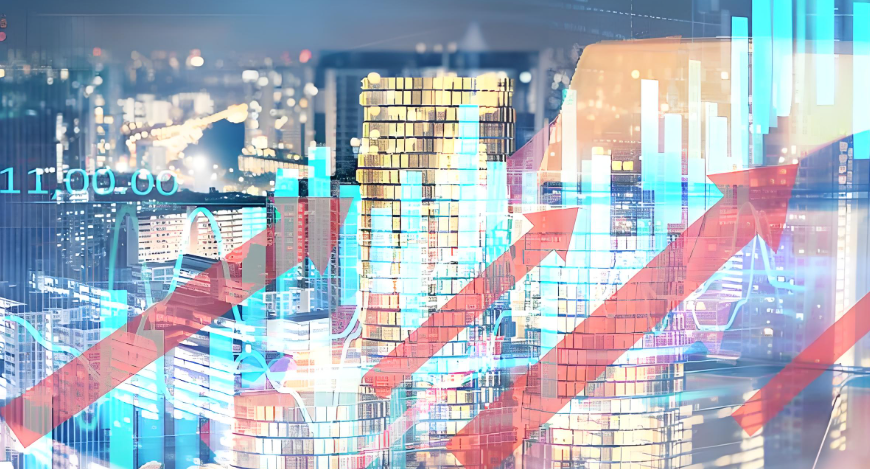Market Drivers of 2025
Advertisements
This week, JPMorgan Chase conducted its annual survey targeting institutional trading clients, unveiling profound insights from traders across the globe about the market landscape expected in 2025. The results of this survey highlighted overwhelming anticipation among traders regarding tariffs and inflation as pivotal influences that will significantly shape the market in the coming years, further indicating a trend toward heightened market volatility becoming the new normal.
The survey attracted a substantial number of participants, totaling 4,233 respondents. Notably, an astonishing 51% of these traders identified inflation and tariffs as the most critical potential factors likely to dominate market dynamics this year. This figure marks a pronounced increase compared to last year's statistics; although inflation was still a primary concern for traders, only 27% of last year's respondents viewed it as a significant issue. This shift reveals the intensifying prominence of tariff and inflation-related issues that have emerged in the past year, now wielding a deeper impact on global markets.
In recent years, the United States has experienced frequent fluctuations in its tariff policies, leading to considerable instability in the market this year. The U.S. has threatened to impose tariffs on foreign imports and specific commodities targeting certain sectors or countries. Such measures can be likened to a stone cast into a tranquil pond, creating ripples of uncertainty. A prime example is the announcement on a Saturday regarding a hefty 25% tariff on goods from Mexico and Canada, which instantly triggered panic in the market, causing major stock indices to plummet on Monday. Market participants expressed concerns that these tariff policies would severely disrupt global supply chains, raising costs for companies and thereby inevitably impacting overall market conditions. Interestingly, just a day later, the announcement to postpone the tariffs on Mexico and Canada led to a swift rebound in the stock market, further illustrating the extreme volatility triggered by shifts in tariff policies.

A significant portion of market participants firmly believes that a strong correlation exists between tariffs and inflation. The increase in tariffs directly raises the costs associated with imported goods, which are ultimately transferred to consumers, leading to heightened prices. According to Chauncey Enzulu, the Global Head of Fixed Income, FX, and Commodities e-Trading at JPMorgan, "At the beginning of this week, we observed a notable increase in trading activity as traders sought to rebalance their portfolios due to fluctuations in specific currencies such as the Canadian dollar and the Mexican peso, which saw volatility in the range of 1% to 2%." Such fluctuations have exacerbated instability in the market, prompting investors to frequently adapt their strategies to mitigate risks.
In stark contrast to the heightened focus on tariffs and inflation, fewer traders perceived a potential economic recession as a factor that could influence this year's market. Only 7% of respondents expressed this viewpoint, a stark contrast to the 18% figure from 2024. This may suggest that despite the numerous challenges faced by the global economy, traders' concerns about economic recession have somewhat subsided, prompting them to redirect their attention to the pressing issues of tariffs and inflation.
When asked about the most significant challenges anticipated in 2025, volatility emerged as the foremost concern among traders, continuing from their worries in 2024. This year, 41% of respondents identified volatility as their primary challenge, underscoring a significant increase from the 28% noted in the previous year's survey. Eddie Wen, the Global Head of Digital Markets at JPMorgan, analyzed this, stating, "What differentiates this year is the somewhat unexpected timing of volatility. Unlike before, where volatility was often linked to scheduled events such as non-farm payroll data, we now see more sudden shifts in the market prompted by headlines associated with government plans, which elicit immediate market reactions." The unpredictable nature of market fluctuations undoubtedly adds substantial complexity to investors' decision-making processes.
Moreover, JPMorgan's e-Trading report delves into market structure issues, shedding light on traders' primary concerns. The findings indicated that challenges related to liquidity acquisition, regulatory changes, and the acquisition of market data and associated costs have emerged as critical focus areas. In today's rapidly evolving market landscape, these factors directly influence trading efficiency and costs, thus requiring investors to address and navigate these pressing challenges effectively.
It is noteworthy that the JPMorgan survey also unveiled a trend of increasing electronic trading among participants. Traders broadly predict that across all traded products, from emerging market rates to commodities and credit spreads, electronic trading will witness a rise in 2025. As technological advancements continue to evolve, electronic trading, characterized by its efficiency and convenience, is poised to fundamentally reshape trading patterns in the financial markets, promising a more vital role in the global trading landscape in the foreseeable future.